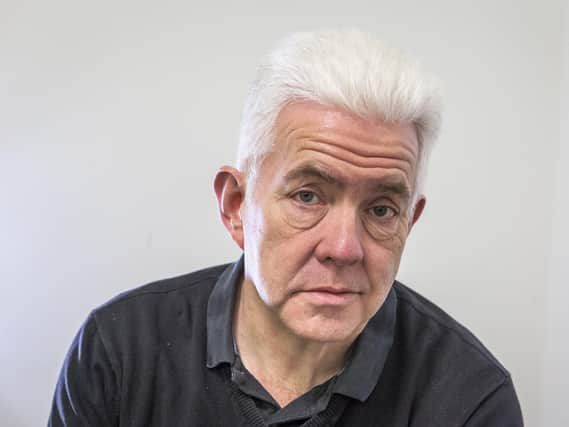Words are often mysterious and at their best they are magical - Ian McMillan


For example, one of my favourite words is palimpsest, which is defined as “a manuscript or piece of writing material on which later writing has been superimposed on effaced earlier writing”.
In other words, a poster with scribbling on and another poster stuck on top is a palimpsest.
Advertisement
Hide AdAdvertisement
Hide AdAnother of my favourite words is synecdoche, which is defined as “a figure of speech in which a part is made to represent the whole or vice versa” as in “Barnsley won by three goals”, meaning Barnsley FC won by three goals and not the entire borough of Barnsley, which would be silly because how would you get them all on the pitch?
Palimpsest. Sinecdoche (which is pronounced sineckdocky). Say them and then say them again.
They seem to have a kind of incantatory power in the same way that, say, the name of a racehorse can come to have a kind of power the more it’s repeated as it thunders towards the finishing line several jumps ahead of the trailing pack. And it’s Palimpsest by a mile.
As we know, repeating any word, even a simple and utilitarian word like door, can make that word seem strange and almost magical. But when the word is mysterious anyway, like palimpsest and synecdoche are, the strange magic is multiplied.
Advertisement
Hide AdAdvertisement
Hide AdI was thinking about where my love of these words came from and I decided that it was the panel game Call My Bluff, which began in 1965, when I was nine years old.
I guess I would have caught up with it in 1967 and I devoured it for a few years until I was a teenager and I considered myself too cool for that kind of show, mainly because my mother and dad watched it and enjoyed it.
Loosely, the show was a quiz where two teams competed; each team had to come up with three definitions of a word, one of which was true while the other two were fibs or bluffs. In the end, I didn’t mind which were the real answers, I just enjoyed the revelation that you could play with words and that definitions could be fluid.
A few Call My Bluff books came out, and some words from the books or the programmes have stayed with me: a jixi, for instance, was a two-seater taxi that was introduced in London in 1925, and a kneppel was a 16th century word, borrowed from the Low Dutch, for the clapper of a bell.
Advertisement
Hide AdAdvertisement
Hide AdFor me, the word kneppel captures the melodious ringing of a bell whereas clapper is quite a clangy word.
My self-appointed task now is to use these words in everyday speech so that they get introduced into common parlance to enliven our vocabularies. I’m not sure how, mind you.
Jixi for McMillan!